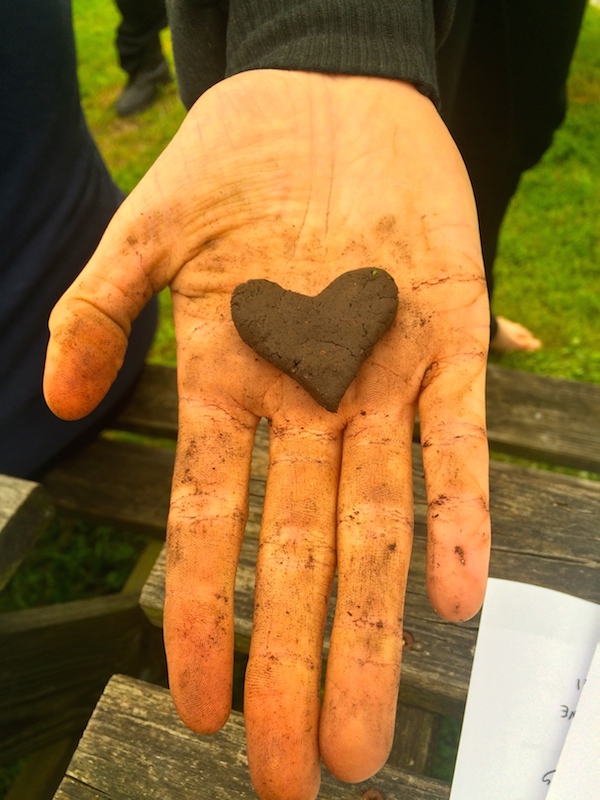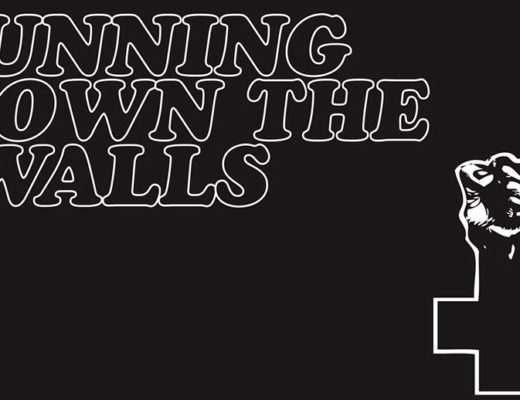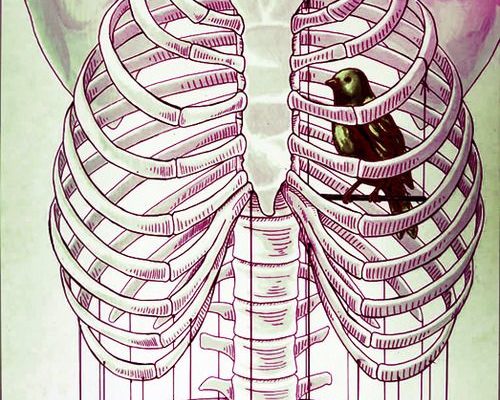This blog was originally hosted at Empty Cages Design.org as part of a series on Overcoming Burnout from 2016-2017. It has now been turned into a book that is available at: https://solidarityapothecary.org/overcomingburnout/
This is part two, focusing on how it feels to live with a chronic illness and struggle for social change.
A group of friends and strangers responded to my call out and shared with me their experiences. This blog post aims to summarise some of the “best practice” and positive experiences they have had, with the hope that more of us in different groups and collectives will make these a reality so we no longer leave people behind.
90% of these words are not my own, for ease of reading I didn’t quote everyone individually but have occasionally added quotes to give more concrete examples. To share this, I have to revert back to my shameless love of bullet points:
- Check in with people. Ask how they are feeling. Especially after ATOS assessments (an assessment for capacity to work) or in times of crisis.
- Recognise that breaks from campaigning and organising are necessary.
- Take it at face value when someone says they cannot do something – as Sarah* says “Disrespecting the right of people of with disabilities to judge for themselves what they can and can’t do is what the government and the DWP does, and is against the principle of anarchist self-determination!” (DWP – Department of Work and Pensions).
- Be aware of ‘relentless negativity’ and how this affects peoples’ energy and well-being (especially if they have very limited energy, such as someone with CFS – chronic fatigue syndrome).
- Do not pathologise or dehumanise people. Sarah* wrote, “When I’ve had a panic attack or looked extremely anxious, it helped when people acted like I’m just a human who is having a health problem, rather than looking at me like I’m a massive weirdo they don’t know how to interact with.”
- Do not measure attendance at actions/events as an indicator of care or commitment when there are so many barriers and reasons why people cannot participate.
- Stay connected with folks that are having a break from organising – who when they need to step back will often feel disconnected and alone.
- Stop using ableist language and start calling out people that do.
- Be understanding of the variability of someone’s feelings and capacity. Sarah emphasised that “The main thing I want people to understand is the variable nature of disability. That sometimes you can do something one day, but that doesn’t mean you can do it regularly or reliably.” This is definitely one of the main things I’ve tried to check myself on – I regularly judged friends that would cancel on me one minute, but then appear pretty energetic and pain-free the next day. This is simply how illness rolls sometimes.
- Understand that people with disabilities or chronic illnesses have to ration their energy extremely carefully.
- Respond to calls for help.
- Don’t assume what is ‘normal’ to you is ‘normal’ to others. Especially when it comes to repression. Jo* wrote that “ I want people to know that activism contributed to my breakdown because I am a straightforward and sensitive person who had never, for example, been mistreated by the police before. I needed more support when that happened to me, but old-hat activists just take it in their stride and expect you to do the same.”
- Check in with people not only immediately after actions, demos, events and so forth, but over the longer term when they are more likely to be dealing with depression, anxiety and burnout.
- Work together so people can participate in other ways if they want or are able to.
- Keep people updated and in the loop.
- Ask for people’s opinions even if they can’t make it and respect that sometimes, they will not be able to give input or respond.
- Do not treat people like they are disposable.
- If a comrade has a chronic illness, take the time to learn about it. Don’t make presumptions about how they must feel; illness is very subjective and unique to everyone. Knowing more about a particular illness will help you understand their needs and limitations.
- While research and self-education are important, be cautious to avoid making ignorant, condescending and outright offensive statements (because this is a common experience for people who wrote to me).
- Encourage healthy lifestyle choices and decisions and try not to enable ones you know will contribute to a friend’s illness. Of course with that kind of encouragement it’s good to acknowledge that it can be complex/difficult for all of us to make changes, and that we need to support each other in those processes.
- Share experiences but do not make out that it’s the “same” for you.
- If someone has limited energy, then small things make a difference so that they can better contribute in terms of political organising. For example, lifts, making them meals, helping with washing up and so forth. These ‘energy savers’ for them mean they can actually use their energy for something they really want to be doing.
These points emerged in terms of how we design and structure our groups and organisations:
- Design in back-ups, or people that can step up if folks are not able to follow through on their actions because of their illness.
- Create horizontally-structured ways of organising that equally distribute work/responsibility/pressure/stress, rather than having larger portions resting on a few people.
- If certain practices are inaccessible in organisations (and are to the detriment of individuals, most likely those with mental or physical health challenges), then members of the organisation as a whole should come up with solutions (not just those that are affected).
- Prioritise personal development and collaborative problem solving in regards to accessibility. One comrade wrote to me saying that, “I’ve especially noticed this recently as I’ve become more involved with the IWW (Industrial Workers of the World – a radical union); that personal development and collaborative problem solving in regards to accessibility in both the physical and mental sense only further enables participation, which in turn consistently improves the welfare of all involved, creating a powerful force for radical change.”
- Commit to making organisations adaptive and responsive.
- Clear policies and procedures can really help. Aaron shared with me how, “It’s not a contradiction for left libertarians to develop and define practical rules and agreed on approaches to accountability. In fact, the lack of such things has destroyed social movements, left many victims of abuse isolated, allowed people to sabotage such movements and the list goes on. It’s a hypocrisy, and not a noble one, to have such strong opinions on the cruelty of our society and all its institutions, yet abandon the vulnerable within our own organisations and social circles.”
Many key points also emerged for folks with illnesses:
Advice from Laura*:
- Identify your body’s own warning signals – how does it feel when you start to become ill or feel unwell?
- Stop and rest when you get a warning signal. Stop while you still feel good.
- Know your own limitations, and don’t be afraid to let others know.
- If someone else informs you of their limitations, respect it – don’t question it or make presumptions. We should encourage each other.
- Know your own needs, and aim to make sure they’re met. What do you need to be happy, healthy? If you have a chronic illness, what do you need to prevent a relapse?
- Rest regularly. How often do we really sit or lie down and do nothing? No screens, no books, no distractions? As people, we have a tendency to always have a need to be doing something. It’s really important that during the day we have moments where we simply rest. It makes a really big difference.
- Plan your days/weeks/time/activities carefully. How long do you need for a certain project or campaign? Is it feasible to do in that time? If it is a lot of work, can you reach out to ask someone else to assist? If it is unfeasible, what would it cost your health to still do it? Spread out major events or workloads, leaving time for resting and activities that add something positive, either mentally or physically, and do not increase tiredness or trigger illness.
- If you are feeling under the weather, don’t be afraid to accept offered help!
Other things that emerged included:
- If you think there is a risk you may not be able to complete tasks, articulating this is really important. Hannah* wrote to me saying, “You have a personal responsibility not to take too much on, then expect others to take the flack when you can’t follow through, so I try not to commit to anything I can’t pick up and put down straight away…In the past, I’ve had people take on projects then dump them on me because they are too ill to follow through, even though they knew I was ill as well, which I found stressful.”
- There is a need for you to communicate as confidently as you can your own needs and expectations. Hannah* emphasised that “You have to find ways to do things to get involved that work for you, and it’s really important that you communicate your needs without expecting others to automatically anticipate them.”
I end with a quote from a close friend, who has been an incredible support for me while getting ill (who has seven years experience more than me):
“We need to start building movements centred around sustainable, long-lasting, healthy and regenerative tactics and habits – and create an environment in which illness is not something that is hidden away or shrouded in shame, but one where someone can feel they will be cared for and supported…
We need to build movements based on resilience, and one of the keys to that is a long term, thoughtful, positive approach to our health and well-being, and creating an environment where people feel comfortable expressing vulnerabilities, asking for help, and learning to work within our own limitations.”





No Comments